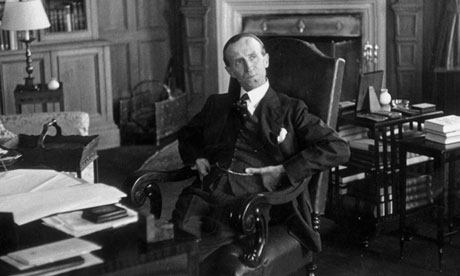
She who "remains undercover and cannot be named" will soon become the first female head of the CIA's National Clandestine Service. In Britain, Elizabeth Manningham-Buller and Stella Rimington have both run MI5. In America, however, last week's appointment of Agent X, whose background reflects the dark side of the war on terror, puts a woman into terra incognita, a place without precedent.
If we try to make comparisons, it's almost impossible. There are several incredibly brave wartime female field agents, notably Mata Hari, a Dutch woman named Margaretha Geertruida Zelle. There are spooky film directors such as Kathryn Bigelow drawn to the shadow world (Zero Dark Thirty), and femmes fatales such as Claire Danes in Homeland. But there are no women to be found at the top of the invisible pole, or, indeed, women writers exploring the secret trade of treachery as popular entertainment.
Espionage began as a boys' game. One of its earliest and most obsessive students was the chief boy scout himself, Robert Baden-Powell. Spies and spy fiction were as Edwardian as plus fours and handlebar moustaches, a by-product of the Anglo-German naval arms race. The pioneer spy stories of John Buchan and Dornford Yates reflected the male-dominated world of London's clubland.
Fact and fiction became hopelessly confused. Somerset Maugham, recruited to British intelligence during the great war, wrote Ashenden, a volume of highly influential spy stories. Maugham, a homosexual, understood the meaning of codes. He was also among the first to imagine, in his story Miss King, the role of women as spies.
After Maugham, much memorable inter-war fiction, the work of Eric Ambler, Geoffrey Household and Graham Greene, explored topical themes of duplicity, loyalty, honour and patriotism, usually framed as thrilling adventures.
On paper, the secret world remained a boys' club. In the UK, however, the truth about MI5 and MI6 (SIS) was that they were staffed, if not run, by generations of brilliant women. Some of these, notably Rose Macaulay and Charlotte Bingham, actually served in the security services but never fully exploited these experiences as writers. Contrast Graham Greene, who cheerfully mined his MI6 years, notably in Our Man in Havana, whose plot owes everything to the antics of a celebrated Spanish wartime agent (and fantasist) named Garbo.
Despite such tempting material, postwar women novelists such as Iris Murdoch, who was certainly familiar with the Oxbridge-BBC-Foreign Office nexus, chose to leave the Garbos to the boys. The upshot: Fleming's 007 and le Carré's Smiley. Similarly, across the Atlantic, another telling silence. In the US, however, there is now a modest roster of women spy writers – Gayle Lynds; Leslie Silbert; Raelynn Hillhouse – though none is particularly well known.
The CIA's appointment of Agent X to the top job marks a bastion of traditional patriarchy falling to sexual equality. With a bit of luck, it might inspire a new generation of women writers to explore the professional world of lies, seduction and betrayal. It's not as if such themes are foreign to the everyday relations of men and women in ordinary life.

